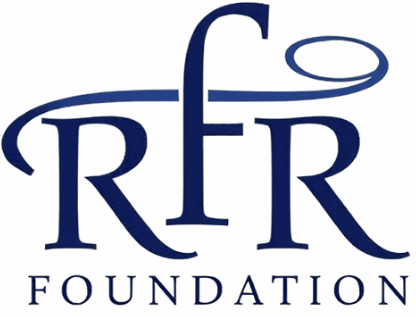Applying for scholarships in 2025 has become more structured and organized, with most scholarship programs requiring a standardized set of documents. Whether you are applying for merit-based, need-based, or international scholarships, ensuring that all necessary documents are ready is crucial to avoid delays or disqualification. This article provides a comprehensive guide on the essential documents needed to apply for scholarships in 2025, along with tips, tables, and a clear overview.
Why Proper Documentation Matters
Scholarship providers need to verify eligibility, academic performance, financial status, and personal achievements before granting awards. Submitting accurate and complete documentation not only demonstrates seriousness but also increases the chances of approval. Missing or incorrect documents are one of the most common reasons for rejection. Therefore, having a ready set of verified documents is a critical step in the scholarship application process.
Common Documents Required for Scholarship Applications
1. Academic Records
Academic performance is a primary criterion for most scholarships. Applicants are generally required to submit:
- Mark sheets and transcripts of previous studies
- Certificates of high school, undergraduate, or postgraduate education
- Rank certificates, if applicable (for competitive exams)
These documents help scholarship providers assess eligibility and merit. Digital copies are often accepted, but many programs still require notarized originals.
2. Identity Proof
A valid identity proof is mandatory to confirm the applicant’s identity and nationality. Acceptable documents include:
- Passport
- Aadhar Card or National ID
- Birth Certificate
- Driver’s License (in some cases)
Identity documents are essential, especially for government or international scholarships, to verify eligibility criteria like age, nationality, or residency.
3. Financial Documents
For need-based scholarships, proof of financial status is required. Typical documents include:
- Family income certificate
- Bank statements
- Tax returns of parents or guardians
- Employer salary certificates
These documents demonstrate the applicant’s financial need and eligibility for scholarships aimed at supporting economically disadvantaged students.
4. Recommendation Letters
Many scholarships require one or more recommendation letters from teachers, professors, or employers. These letters:
- Confirm academic and personal qualities
- Highlight leadership, skills, and achievements
- Provide insight into the applicant’s character and potential
It is important to request recommendation letters well in advance and ensure that they are signed and officially stamped.
5. Statement of Purpose / Essays
Scholarships often require applicants to submit a Statement of Purpose (SOP) or essay. This document should:
- Explain educational and career goals
- Highlight achievements and challenges
- Reflect motivation for applying to the scholarship
A well-written essay can significantly enhance your chances of selection by showcasing your individuality and ambition.
6. Certificates of Achievements
Extra-curricular achievements, awards, and certifications strengthen the application. These may include:
- Sports certificates
- Art or music awards
- Volunteer or community service certificates
- Internship or training completion certificates
Scholarship providers value holistic development, and these certificates demonstrate well-rounded capabilities.
7. Passport-Sized Photographs
Recent passport-sized photographs are often required for identification purposes and inclusion in application forms. Ensure the photographs meet the specifications mentioned by the scholarship authority.
Overview Table
| Document Type | Purpose | Common Requirements | Suitable For | Notes |
|---|---|---|---|---|
| Academic Records | Verify eligibility and merit | Mark sheets, transcripts, rank certificates | All applicants | Originals may be required |
| Identity Proof | Confirm identity and nationality | Passport, Aadhar, Birth Certificate | All applicants | Must be valid and current |
| Financial Documents | Demonstrate need for financial aid | Income certificate, bank statements | Need-based scholarships | Provide accurate and recent records |
| Recommendation Letters | Highlight academic & personal qualities | Letters from teachers, professors, employers | All applicants | Preferably signed and stamped |
| Statement of Purpose / Essays | Showcase motivation and goals | SOP, personal essay | Most scholarships | Tailor to each scholarship |
| Certificates of Achievements | Demonstrate holistic development | Sports, arts, volunteering, training | All applicants | Optional but recommended |
| Passport-Sized Photographs | Identification | Recent photographs | All applicants | Follow portal’s size and format rules |
Tips for Organizing Scholarship Documents
- Prepare Digital Copies: Scan all original documents and save them in PDF format to make online submissions easier.
- Keep Originals Safe: Originals may be required during interviews or for verification; keep them organized and secure.
- Check Requirements Carefully: Each scholarship may have specific document requirements, so review the guidelines before applying.
- Ensure Accuracy: Verify that all names, dates, and details match across documents to avoid discrepancies.
- Get Translations if Needed: For international scholarships, certified translations of documents may be required if they are not in English.
FAQs
1. Are transcripts mandatory for all scholarships?
Yes, most scholarships require academic transcripts to verify eligibility and performance.
2. Can digital copies of documents be submitted for online applications?
Yes, most portals accept scanned digital copies, but originals may be requested later.
3. How many recommendation letters are usually needed?
Typically, one to three recommendation letters are required depending on the scholarship.
